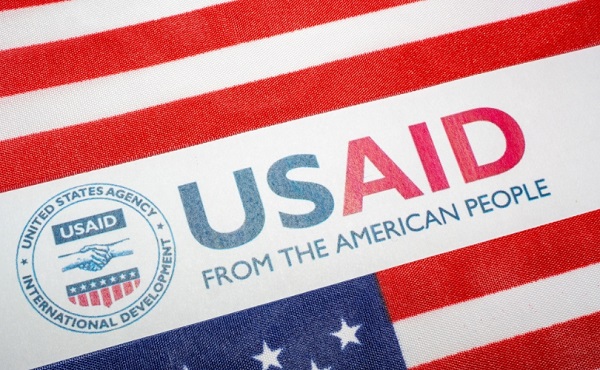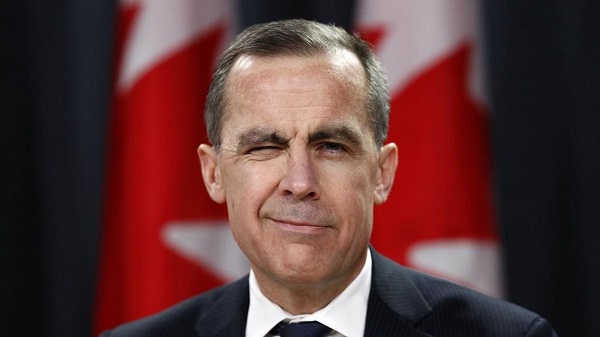Business
Trump’s USAID shutdown is a win for America and a blow to the globalist agenda

From LifeSiteNews
USAID’s promotion of DEI, gender ideology, and population control around the world, along with its efforts to undermine democracies in Europe and Latin America, have greatly damaged America’s standing in the world.
The closure of a corrupt government agency is always cause for celebration.
Not that it happens very often. As President Ronald Reagan once remarked, “The closest thing to eternal life on earth is a government program.”
In the case of the now-defunct U.S. Agency for International Development, its shuttering will save U.S. taxpayers some $54 billion a year.
But Trump’s closure of the rogue agency is about far more than reducing the size of government or balancing the budget. We are not even talking about simply ending waste, fraud, and abuse, although there were bucket loads of that going on.
READ: Trump’s dismantling of USAID is his biggest blow against the Deep State yet
Under its former director, Samantha Powers, the agency had been transformed into a slush fund for woke fever dreams. No project was too wacko to throw money at.
You want funding to convince Peruvian girls they were born into the wrong body, or to promote LGBT activism in Serbia? USAID had a check for you.
You need money to fund sex changes in Guatemala or to open a transgender surgery clinic in India? You had but to ask.
But as corrosive to the sensibilities of normal people – and to America’s image overseas – that this reckless promotion of DEI and gender ideology was, our overseas aid agency was engaged in far more nefarious schemes.
It turns about that many millions of dollars of aid to the Middle East made their way into the hands of Hamas and Hezbollah. From funding the college education of al-Qaeda terrorist Anwar al-Awlaki to sending $2 billion to Gaza over the past two years, our tax dollars have been used to underwrite terrorism.
An estimated 90 percent of our aid to Gaza ended up in the hands of Hamas post-October 7, 2023. Without the constant infusion of U.S. funds, it is doubtful that the terrorist organization would have survived.
Equally egregious is USAID’s undermining of democracy. As Marjorie Taylor Green just noted at a congressional hearing, “What we have learned is that USAID has been used by Democrats to brainwash the world with globalist propaganda to force regime changes around the world.”
Roughly half a billion dollars went into one organization alone. It was called the Organized Crime and Corruption Reporting Project, and billed as a global network of investigative journalists. But it had as much to do with promoting globalist narratives and undermining populist politicians as it did with exposing corruption, perhaps more.
If you want to know why populist Jair Bolsonaro is no longer president of Brazil, why the conservatives lost in Poland, or why the democratically elected president of Romania – another populist – has now been arrested, look no further than USAID’s massively funded propaganda campaigns against these and other anti-globalist politicians.
As in Xi Jinping’s China, where the Chinese dictator has been purging his political enemies under the guise of an “anti-corruption campaign,” USAID’s anti-corruption campaign was ultimately not about corruption at all.
Like Xi, who was, as the Chinese say, “hanging up a goat’s head, but selling dog meat,” the agency was motivated by a hidden and deeply corrupt purpose – undermining democracy in order to promote globalism.
Victor Orbán of Hungary, whose government has survived years of similar onslaughts, is now vowing to crack down on all of the foreign-funded NGOs operating in his country. He will find that his opposition was chiefly funded by our tax dollars, judging from the many trips to that country that Samantha Powers took over the past few years.
As ruinous as all this is for America’s standing in the world, there is even worse news. Many of the tens of billions of dollars that the agency was flushing down the toilet didn’t go overseas at all, but was spent in and around the Washington, D.C., swamp.
And almost all of this – well over 95 percent – went to Democrat-controlled groups.
How much of the incessant lawfare against Trump that began as soon as he announced his candidacy for president in 2015 was funded indirectly by our tax dollars?
How much of Kamala’s $2 billion campaign coffer came from our own pockets, laundered by USAID through well-connected NGOs and leftist politicians?
Despite the mounting evidence of corruption, there are still those who claim that USAID does much good and should be reformed, not shuttered. “Don’t throw the baby out with the bathwater,” one recent headline read.
The problem is that USAID was never primarily about feeding the hungry, giving drink to the thirsty or, for that matter, saving babies. In fact, from the very beginning it was designed to be an instrument of population control.
Its stated goal was “population stabilization.” To this end, it busied itself reducing the number of babies born, all in the name of fighting “overpopulation,” “eliminating poverty,” and, more recently, “saving the planet.”
This is spelled out clearly in Richard Nixon’s National Security Study Memorandum 200, which made it clear that foreign aid was to be used to bribe or bludgeon countries into reducing their birth rates.
Even today, USAID was – until a few weeks ago – promoting abortion in Malawi, doing abortion referrals in Uganda, and pressuring Sierra Leone to legalize abortion as a condition of receiving foreign aid.
Supporters of USAID argue that its programs create goodwill, but it’s hard to see how telling African women and men they would be better off sterilizing themselves and aborting their children accomplishes this end.
And how would Americans feel if China, say, were funding a program to vasectomize American men? Think about that for a second.
USAID’s promotion of DEI, gender ideology, and population control around the world, along with its efforts to undermine democracies in Europe and Latin America, have greatly damaged America’s standing in the world.
But the crime that calls for the complete destruction of the agency is that it was striking at the very roots of the republic itself.
Using the taxes paid by a free people to undermine their freedom is, by anyone’s definition, treason.
Steven W. Mosher is the President of the Population Research Institute and the author of The Devil and Communist China.
Business
PM Carney’s Astounding Conflicts Are Clearly Exposed. What Will Parliament, The Media, And Voters Do About It?

Will opposition parties force an election? Will the media demand Carney account for his conflicts? Will voters continue to allow Carney and Brookfield to profit from Carney’s leadership as they condemn the US President for doing the same?
NEWS ALERT!!!! https://t.co/HrhXGCyfPq
— Andrew Scheer (@AndrewScheer) October 1, 2025
From Conservative Party Communications
Conservative members of the Ethics Committee released the following statement on its ongoing investigation into Prime Minister Mark Carney’s conflicts of interest:
“Yesterday, the Ethics Committee heard scathing testimony from Canada’s leading ethics and accountability experts on the façade that is Mark Carney’s so-called blind trust – and his conflict of interest screen which is nothing more than a smokescreen.
“Leading ethics and conflict of interest experts told MPs that these measures are entirely insufficient, and that Prime Minister Carney stands to make millions from his investments while keeping them largely hidden from Canadians. The breadth of Carney’s conflicts and potential to benefit financially are entirely unprecedented in federal Canadian politics.
“Carney was involved in structuring Brookfield’s Global Transition Funds, from which he is set to receive carried interest payments potentially worth tens of millions of dollars. Carney knows exactly what assets are in these funds, but he has refused to disclose them. If the funds make money, he makes money – and the decisions he makes as Prime Minister will impact their value.
“Democracy Watch founder Duff Conacher testified that the Conflict of Interest Act allows Carney to ‘secretly profit’ from ‘secret investments’ – dismissing blind trusts as ‘not blind at all’ – and confirmed that Carney knows exactly what is in his blind trust. It is only the public that is blind to the full extent of the Prime Minister’s holdings.
“As currently written, the Act allows the Prime Minister to participate in ‘99% of the decisions’ that impact his private investments. Conacher considers the legislation a ‘sad joke’ – noting that ‘any time [Carney] is making a decision that affects businesses in Canada, he is in a financial conflict of interest.’
“As York University’s Dr. Ian Steadman told the Committee, blind trusts simply ‘aren’t enough’ to prevent public office holders from advancing their personal financial interests.
“Witnesses also slammed the Prime Minister’s conflict of interest screen. The screen is enforced by Carney’s top two aides who serve at his pleasure and are not independent. It lacks any transparency or oversight mechanism, which Conacher noted is a violation of the Act.
“The Ethics Commissioner has the power to strengthen the ethics screen and enforce full transparency today. He has failed to do so. This is deeply troubling, and must be addressed.
“These revelations are just the tip of the iceberg in an ongoing investigation. Conservatives will continue to expose Mark Carney’s unprecedented conflicts of interests and fight to close the loopholes in the Act that the Prime Minister is taking advantage of.”
Alberta
Ottawa’s Firearms Buyback Plan: Federal Government Puts Provincial Authority In Its Sights

From the Frontier Centre for Public Policy
It’s about politics and provinces are right to refuse to play along
Federal Public Safety Minister Gary Anandasangaree’s leaked admission that Ottawa’s firearms buyback is unenforceable was no slip. It exposed the way federal power is deployed for partisan gain while provinces are left to pay the bill.
The leak matters because it exposes a pattern, not an exception. Ottawa drafts policies to suit its politics and expects provinces to carry the weight. Police budgets, university research chairs, hospital systems and housing markets are treated as levers to be pulled from Ottawa. The effects are felt locally, but the decisions are made elsewhere.
Consider the pattern. The Online Harms Act, rejected more than once, is introduced yet again, as if repetition can substitute for consent. Health care dollars are tied to federal strings that reorder provincial systems with no regard for local capacity. Immigration quotas climb at a pace provinces cannot house or school. Environmental rules descend without negotiation, upending years of co-operative planning. Each measure arrives as an edict. Consultation is reduced to announcement.
Resistance has already begun. Saskatchewan moved early, adopting legislation that makes any federal confiscation program subject to provincial authority, including RCMP operations. In Alberta, Premier Danielle Smith has gone further, declaring flatly: “We will not allow police in Alberta to confiscate previously legal firearms. I have directed two of my ministers to relentlessly defend Albertans’ right to lawful and safe possession of firearms and the right to self-defence.”
Even before the introduction of the Sovereignty Act, Tyler Shandro, then Alberta’s justice minister, announced that the province would not use its police or prosecutors to carry out confiscations. Although former premier Jason Kenney opposed a Sovereignty Act, his government likewise refused to act as Ottawa’s enforcer.
Alberta and Saskatchewan have since given themselves legislative tools, Sovereignty Acts, which assert the right of provinces to decline enforcement of federal laws they judge unconstitutional. These statutes formalize existing constitutional powers. Provinces without Sovereignty Acts have also drawn lines. Ontario has signalled its refusal to help enforce Ottawa’s firearms program.
These positions are lawful, rooted in the Constitution’s division of powers, which assigns the administration of justice and policing to the provinces.
This clarity ought to attract others. Manitoba, with one of the highest proportions of licensed hunters in the country, has strong reason to resist Ottawa’s targeting of lawful gun owners. Communities are not made safer by seizing deer rifles from responsible hunters, nor are public services improved by diverting scarce provincial resources into a program that federal ministers concede will not work. Manitoba would do well to follow Alberta and Saskatchewan in defending its jurisdiction, whether through a Sovereignty Act or by refusing to play Ottawa’s game.
The point is practical. Prairie provinces cannot spare rural detachments to seize hunters’ rifles because the Liberal caucus fears losing seats in Montreal. They cannot put their power grids at risk to meet Ottawa’s timelines while households absorb higher bills. Universities cannot be turned into federal policy pilot projects. Provinces exist to govern their own communities, not to absorb the fallout of federal experiments.
The genius of federalism lies in the division of authority, which encourages compromise and minimizes tyrannical imposition. Ottawa governs in its sphere, provinces in theirs. Where the two overlap, cooperation must be negotiated, not imposed. Sovereignty Acts sharpen that principle. They remind Ottawa that partnership is earned, not dictated.
What Anandasangaree’s admission exposed was not only the cynicism of one firearms program. It revealed a method of governing: federal power deployed for partisan gain, with provinces reduced to instruments. That cannot endure. Canada was never meant to be a chain of command. It was built as a contract—one that requires respect for provincial authority.
Provinces that refuse to carry out Ottawa’s politically motivated projects are not weakening Canada; they are enforcing its terms.
Marco Navarro-Genie is vice-president of research at the Frontier Centre for Public Policy and co-author, with Barry Cooper, of Canada’s COVID: The Story of a Pandemic Moral Panic (2023).
-

 Alberta1 day ago
Alberta1 day agoWith no company willing to spearhead a new pipeline under federal restrictions, Alberta takes the lead
-

 National2 days ago
National2 days agoCanada’s birth rate plummets to an all-time low
-

 espionage2 days ago
espionage2 days agoNorth Americans are becoming numb to surveillance.
-

 Alberta1 day ago
Alberta1 day agoHalfway River First Nation makes history with Montney natural gas development deal
-

 Crime2 days ago
Crime2 days agoPierre Poilievre says Christians may be ‘number one’ target of hate violence in Canada
-

 Business1 day ago
Business1 day agoElon Musk announces ‘Grokipedia’ project after Tucker Carlson highlights Wikipedia bias
-

 Alberta1 day ago
Alberta1 day agoTaxpayers: Alberta must scrap its industrial carbon tax
-

 Bruce Dowbiggin1 day ago
Bruce Dowbiggin1 day agoThe McDavid Dilemma: Edmonton Faces Another Big Mess



